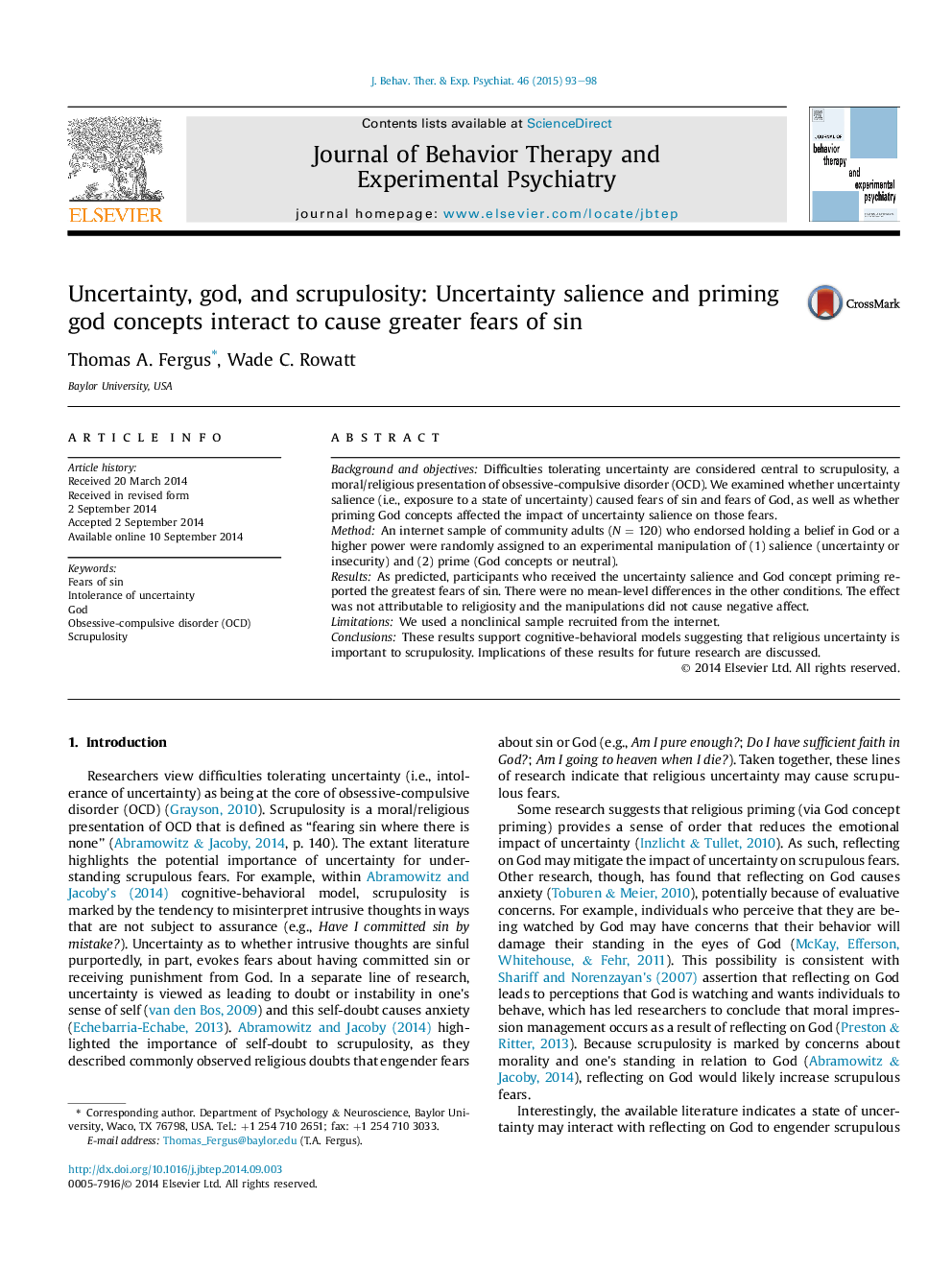| Article ID | Journal | Published Year | Pages | File Type |
|---|---|---|---|---|
| 910348 | Journal of Behavior Therapy and Experimental Psychiatry | 2015 | 6 Pages |
•Examined impact of uncertainty and God concept priming on scrupulous fears.•State of uncertainty and God concept priming experimentally manipulated.•Uncertainty and God concept priming interacted to cause greater scrupulous fears.•Experimental effects particularly strong for fears of committing sin.
Background and objectivesDifficulties tolerating uncertainty are considered central to scrupulosity, a moral/religious presentation of obsessive-compulsive disorder (OCD). We examined whether uncertainty salience (i.e., exposure to a state of uncertainty) caused fears of sin and fears of God, as well as whether priming God concepts affected the impact of uncertainty salience on those fears.MethodAn internet sample of community adults (N = 120) who endorsed holding a belief in God or a higher power were randomly assigned to an experimental manipulation of (1) salience (uncertainty or insecurity) and (2) prime (God concepts or neutral).ResultsAs predicted, participants who received the uncertainty salience and God concept priming reported the greatest fears of sin. There were no mean-level differences in the other conditions. The effect was not attributable to religiosity and the manipulations did not cause negative affect.LimitationsWe used a nonclinical sample recruited from the internet.ConclusionsThese results support cognitive-behavioral models suggesting that religious uncertainty is important to scrupulosity. Implications of these results for future research are discussed.
